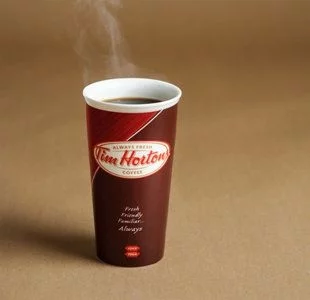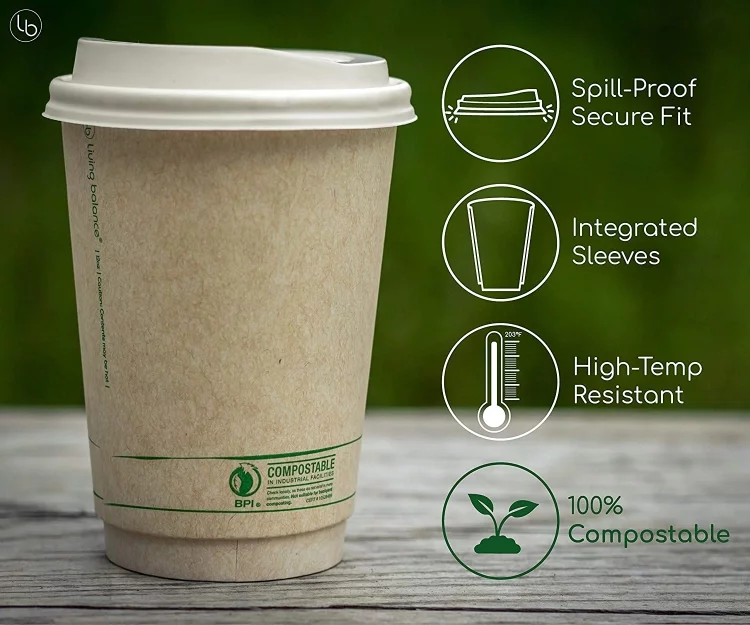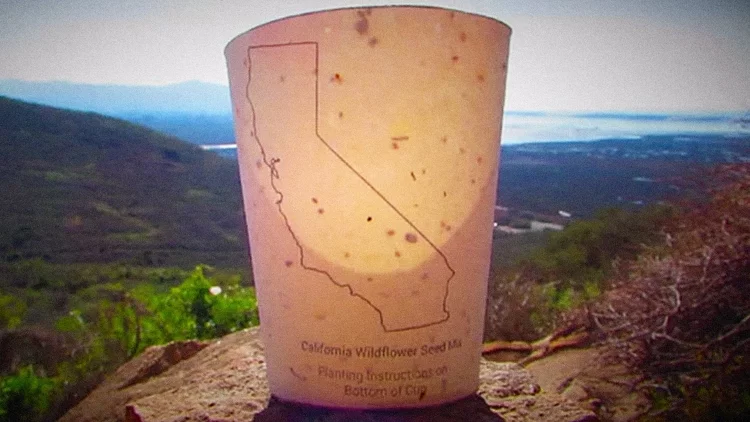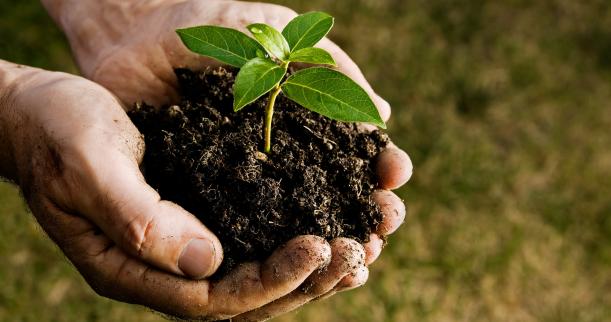Compostable Coffee Cups Are Making A Difference
by Selmir Omic
Something that has always bothered me about the coffee industry is the wastefulness associated with disposable coffee cups, lids, and various other coffee-related products. I'm not trying to lay a guilt trip on the world, but its just unfortunate that something as natural as coffee, that is grown on coffee farms, and is shipped around the world in sacks, ends up in a cup that is destined to fill up landfills and contribute to the same environmental stresses that growing coffee on farms seeks to alleviate in the first place.
With global issues like climate change beginning to catch up with us, I think its about time that people try harder to do what they can towards making a positive difference in the world.
Even companies like Dunkin' Donuts, who are famous for their styrofoam coffee cups, are having to acknowledge that their cups aren't doing the world any favors by starting to produce more environmentally friendly coffee cups in some locations (read more about that here).
And, if you can believe it, people are mad about this! The thing is, people like their coffee hot, which is an advantageous property of making cups styrofoam - it being a great insulator, and compostable coffee cups just aren't the same, they say. They're less sturdy, and your coffee will get cold faster.
Do these people care that styrofoam is toxic to humans, and very environmentally un-friendly? Apparently not, as the debate between ditching styrofoam in favor of, say, a compostable /biodegradable coffee cup still rages on in comment sections (like this one here) and, of course, in regular conversations between those who care about the fate of humanity, and those who do not.
Even though I'd like to say we must show styrofoam no mercy and get rid of it entirely, because it is such a wasteful material, we need to be more realistic than that, since society has been using it for so long now.
But the longer we use it, the more it piles up.
I suppose, to be completely honest about the usefulness of styrofoam as a material, I must admit it obviously has its uses, which we'd be hard-pressed to replace in certain cases.
From life rafts, to packing material, to keeping coffee hot, styrofoam, A.K.A. polystyrene (its less catchy, cool name) has plenty of valuable uses.
The downside being that its not very recyclable, and by no means is it compostable or biodegradable, as this article suggests.
Personally, I'm not a real band-wagon jumper, as in, the kind of person who hears on Facebook that a product is bad and immediately gets on my high horse just so I can be "right". But it just so happens that I've researched this topic myself and I've found that styrofoam has a number of ill effects, particularly on people, and specifically when they are drinking out of styrofoam cups like those used for coffee. I encourage everyone to do their own research on styrofoam to reach your own conclusions. But I just bet that you'll discover the same thing I did, which is that styrofoam isn't good for people, nor is it good for the environment in the long run.
Positive Changes - Coffee Shops Getting Greener With Compostable Cups
Where I'm from, there's a little coffee shop called Tim Horton's. Maybe you've heard of it. Similar to Dunkin' Donuts, they have been known in the past for their not-so-biodegradable coffee cups. I can't tell you how much environmentally unfriendly material they have produced over the years, with trash bins overflowing with non-biodegradable Tim Horton's garbage.
But now here's a P.R. video that shows that Tim Horton's is trying to put its best foot forward in terms of looking out for the environment, and hopefully looking towards producing a fully biodegradable coffee cup at some point.
One good point made in this video by Tim Horton's is that people should try as often as possible to bring along their own reusable travel mug, for which people doing so at Tim Horton's are rewarded with a 10% discount.
I'm not sure if this includes non-Tim Horton's reusable travel mugs, like the kind I use, but good on them for at least making the suggestion to use these kind of mugs.
Devil's Advocate - Why People Love Their Non-Compostable Coffee Cups
In Canada, it is basically sacrilegious to say bad things about Tim Horton's coffee shops. As Canada has fairly harsh winters, Tim Horton's is one of the most popular quick stop restaurants in the country, and they're known for their donuts, soups, bagels, and especially their coffee.
And when the winters are so cold, people love their coffee HOT. And you know what that probably means… more well-insulated, non-compostable coffee cups!
If we want to be totally honest here, this is part of the major concern people have with biodegradable coffee cups and why its difficult for a company like Tim Horton's, or any other coffee shop, to fully switch over to biodegradable coffee cups. There is a fine balance between pleasing their customers, making business profitable, and being environmentally conscious.

The truth is that if the majority of their customers were demanding biodegradable coffee cups, and would accept no substitutes, Tim Horton's would probably roll out a totally new type of biodegradable coffee cup for them in short order, because listening to their customers is a top priority.
As it stands, their overarching environmental policies do seem to be leading towards going more green, which is good. However, the whole issue of biodegradable coffee cups is much more complex than it appears.
Meaning, it involves more than just the cooperation of the coffee shops. It involves public awareness, the policies of local recycling plants, and the civil leaders who decide what receptacles are out on the streets of a given city or town. Because if people don't have access to the proper waste receptacles, it might not matter if the coffee shops make their coffee cups recyclable, much less compostable.
All of that said, what I like to see is people taking strides towards producing a more environmentally friendly type of coffee cup. If it were also biodegradable, that would be ideal.
Here Are Some Compostable Coffee Cups That Rock
For my part, I almost always try to purchase biodegradable coffee cups and lids. Once I discovered that I could purchase biodegradable coffee cups and lids online, I always keep somein stock at my house for when I'm having coffee on the go.
My personal favorite kind of biodegradable coffee cup is made by a company called World Centric, and I'm always picking up a 200 pack over on Amazon which takes me a several months to get through. What I like to do is that once every day or two, I mosey down to the coffee shop, and bring one of these 100% biodegradable / 100% compostable coffee cups along with me. They usually give me a slight discount because I'm a regular customer and I'm bringing my own to-go cup, and in exchange I'm not only helping the environment, which I think is really important, but, over time, I'm saving a little bit of money to boot.
What's really great about these cups is that they're made from recycled paper with a PLA-lining. PLA (polylactic acid) is a bi-product of corn, and so its completely eco-friendly and breaks down easily. They're also able to withstand temperatures of up to 200 degrees F. Hot coffee is normally served at between 160-185 degrees F, so it has no problem holding the coffee. But you might want to get a biodegradable sleeve (I use this one, also made by World Centric) to go along with it, because it can be pretty hot to hold on its own. Also, I get myself a pack of 200 biodegradable lids so that I have all I need for a little while.
Overall, I feel I get my money's worth from these items because they are totally eco-friendly, and I end up saving a few dollars over the course of a few months. These cups are also good for other occasions which are normally involve wasteful plastic or styrofoam products, like family gatherings and picnics.

Compostable Coffee Cups Are Making A Difference
"Reduce, Reuse Grow" is an innovative Californian company that has developed a biodegradable coffee cup which has flower and tree seeds in the cup lining.
The basic concept here is that after the customer buys the coffee served in one of these cups, the person can either plant the cup or return it to the store so that someone from the company can plant it. The seeds in the paper cups will be native to the location of the store where the coffee was purchased.
In the United States, many consumers are unaware of what happens to their garbage. This California company wants to educate consumers about their environment so they picked a popular product that involves something simple to dispose of after the consumer is finished with it.

Because coffee is such a popular drink and billions of cups annually are used by consumers, coffee in a paper cup, was chosen by "Reduce, Reuse, Grow" to use for this environmental project. They found that even though many people recycle their used coffee cups, the cups eventually end up in the landfill sites anyway. A better solution to our garbage was needed so this new packaging idea was invented.

Flower and tree seeds were embedded in the lining of these cups and the cups break down in less than 200 days, allowing the seeds to grow into beautiful native flowers or trees.
Picture this… A consumer walks into a coffee shop or maybe buys coffee at a favorite drive-through. After the consumer is finished with the coffee and cups, a decision has to be made about the disposing of it. They can plant the cup somewhere in their community to enhance their local environment, or they might wish to deposit the cup in a special receptacle in a local coffee shop that supports this initiative.
If the latter option is what happens, then the Reduce Reuse Grow company will make sure the cup is planted in an appropriate location to improve the environment. As an environmentalist myself, and a fan of tree-planting, not to mention coffee - all of this is right up my alley, and so I wanted to write about it for all the coffee fans who may not know about this initiative.

The consumer will be aware of what the seeds are in the coffee cup and where they will be planted in their community. The consumer may find out more information by contacting the address on the bottom of the cup.
Prototype cups are being developed now in California and Colorado. This biodegradable coffee cup programme should be in place by the summer of 2015. Consumers can get as involved as they wish with this programme. They might wish to donate monies to "Reduce, Reuse Grow", or just buy a t-shirt or a piece of art. There are lots of options available to the consumer outlined on the website listed on the cup.
Check out their Kickstarter campaign right here, which has already raised an impressive amount of money towards their goal. Check out their website by clicking here.
The mission of Reduce, Reuse Grow is to change the waste habits of consumers to one that is more positive and informative, and better for everyone.
Giving back to our communities is a win win proactive action for all!
 |
 |
 |
 |

About Selmir Omic
Selmir Omic is KYG's cannabis lifestyle writer. He currently resides in San Francisco and can often be found enjoying design-forward cannabis accessories, candles and seltzer simultaneously. When he's not writing about pot or waxing poetic about vape pens, Selmir can be counted on to offer sage advice about the best strains for anxiety or how to make cannabutter without a stovetop.
Thoughts on "Compostable Coffee Cups Are Making A Difference"
 |
 |
 |
 |
Get FREE Coffee Gifts now. Or latest free grinders from our best collections.
Disable Ad block to get all the secrets. Once done, hit any button below
 |
 |
 |
 |